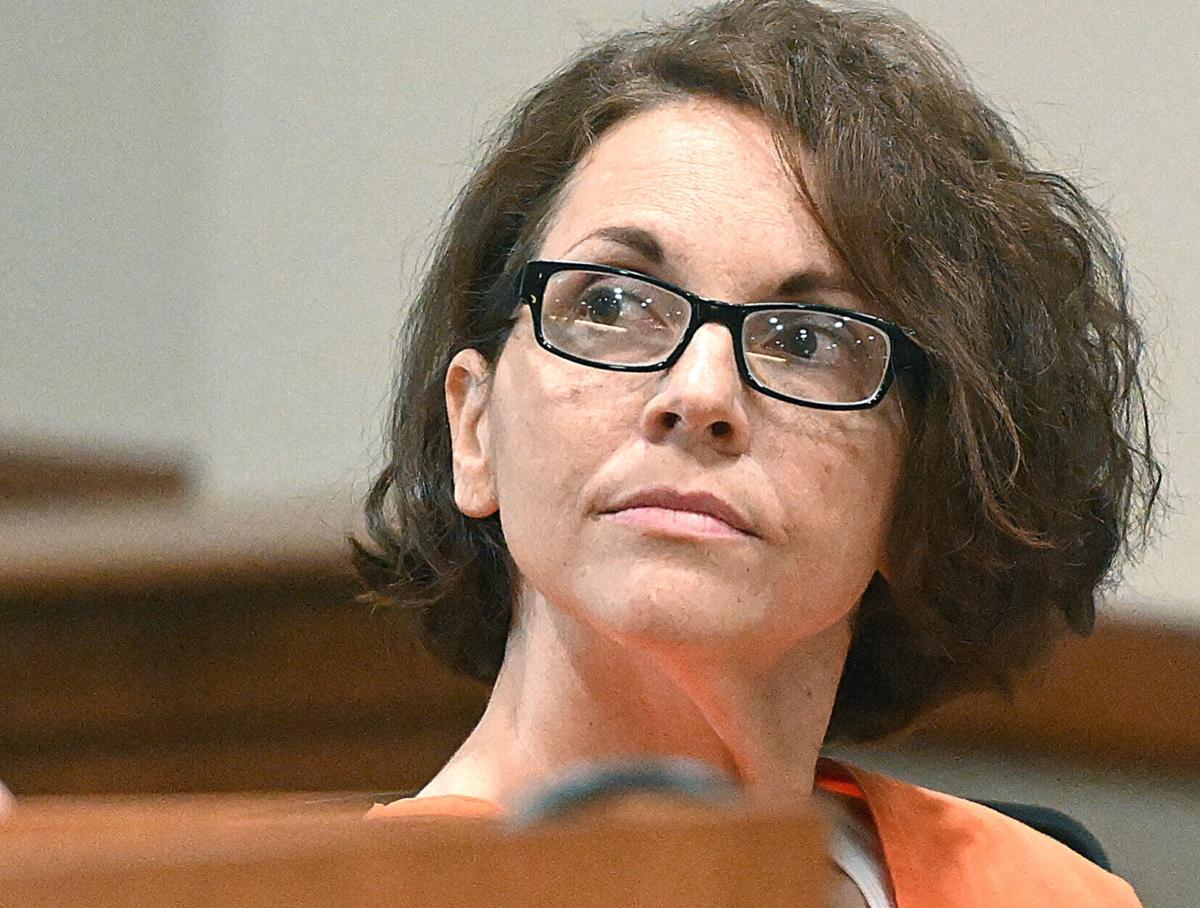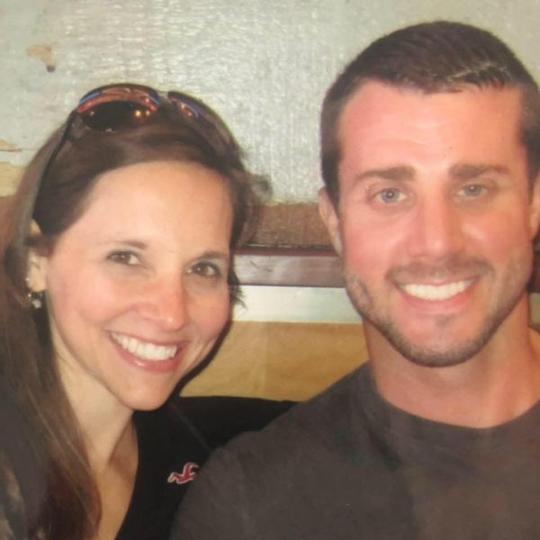Natalie Cochran Case: What Happened After Her Husband's Death?
Could a seemingly idyllic life mask a web of deceit, betrayal, and ultimately, murder? The case of Natalie Cochran, a woman from Beckley, West Virginia, exposes a chilling narrative of financial fraud and a fatal conspiracy that shattered the lives of many, leaving behind a legacy of unanswered questions and profound grief.
The idyllic facade of a comfortable upbringing in Beckley, West Virginia, for siblings Nicole and Ashton Cochran, belied the darkness that would soon engulf their family. Their parents, Michael and Natalie Cochran, welcomed them into the world in 2006 and 2008, creating a picture of domestic harmony. However, this carefully constructed image began to crumble following the death of Michael Cochran in February 2019, revealing a series of shocking truths that would shatter the Cochran family and expose a complex web of deceit. After Michael Cochran's death, the secrets began to spill. The investigators began to dig, and the depth of Natalie Cochran's betrayal was revealed, unearthing a trail of financial fraud and culminating in the accusation of her involvement in her husband's homicide. Prosecutor Tom Truman laid out a chilling case for the state, alleging that Natalie Cochran had poisoned her husband with insulin. The motive, Truman argued, was to prevent Michael from discovering that their government contract business was a Ponzi scheme. This scheme had defrauded friends and family, all to support a lifestyle fueled by extravagance and deceit. As the legal proceedings unfolded in Raleigh County Circuit Court, the details of Natalie Cochrans double life began to emerge, painting a picture of a woman willing to go to extreme lengths to protect her carefully constructed faade.
| Attribute | Details |
|---|---|
| Full Name | Natalie Cochran |
| Age (as of conviction) | 42 (sentenced in Raleigh County Circuit Court) |
| Residence | Formerly of Beaver, West Virginia |
| Children | Nicole and Ashton Cochran |
| Husband | Michael Cochran (deceased February 2019) |
| Crimes Committed | Murder, Fraud (Ponzi Scheme) |
| Sentence | "No mercy" sentence, ineligible for parole (Raleigh County Circuit Court); Federal prison sentence for fraud |
| Ponzi Scheme | $2 million scheme (2017-2019) posing as a government contractor |
| Victims | Friends, family, and investors |
| Court | Raleigh County Circuit Court, Federal Court |
| Legal Representation | Defense attorneys |
| Key Events | Michael Cochran's death in February 2019, Conviction on fraud charges, Trial for murder |
Reference: Information related to this case can be found through various news outlets and legal databases. Verification via West Virginia Metro News can provide additional information.
The jury in Raleigh County Circuit Court delivered a harsh verdict: a "no mercy" sentence for Natalie Cochran. This means, as reported by WV Metro News, that the 42-year-old would not be eligible for parole. The decision signaled the severity with which the court viewed her actions, effectively ensuring she would spend the rest of her life behind bars. The following day, the court upheld this decision, further solidifying the grim reality of her fate. The charge of murder carried a maximum penalty of life in prison, and the jury's decision reflected the gravity of the crime.
The investigation into Natalie Cochrans life unearthed a disturbing reality. Investigators discovered that she had defrauded numerous individuals, luring them into investing in her business. The extent of the Ponzi scheme, which ran from 2017 to 2019, was revealed to be a staggering $2 million. Natalie Cochran, posing as a government contractor, used this scheme to deceive investors and steal millions of dollars. This fraud was not simply a financial crime; it was the engine that fueled her lavish lifestyle, supported by the money stolen from friends and family.
The opening statements by Prosecutor Tom Truman painted a grim picture of deception and malice. He accused Natalie Cochran of poisoning her husband with insulin. According to the prosecution, this act was calculated to prevent Michael Cochran from discovering the fraudulent nature of their government contract business. The alleged motive was to maintain the illusion of success and protect her from exposure. This revelation would not only reveal the financial fraud but also expose the depth of Natalie Cochrans betrayal and her willingness to go to any length to conceal her crimes. The trial delved into the intricacies of the couple's relationship, the inner workings of their business dealings, and the circumstances surrounding Michael Cochrans death.
The defense attorneys attempted to portray a different narrative. They suggested that Natalie Cochran was merely following her husband's orders. They also asserted that Michael Cochran, due to his perceived higher status within the marriage, would likely have been aware of their business dealings. In their attempts to mitigate her culpability, the defense team brought forward character witnesses who testified about Natalies personal qualities. However, the weight of evidence and the severity of the accusations made it difficult to sway the jury. Despite these efforts, the jury found her guilty. Evidence presented during the trial revealed that Natalie Cochran was not only involved in the financial fraud, but also in the homicide of her husband.
The proceedings in Raleigh County Circuit Court were marked by intense scrutiny and high stakes. Natalie Cochran, formerly of Beaver, appeared for a pretrial hearing. Raleigh County Circuit Judge H.L. Kirkpatrick granted a defense motion to move forward with the trial. The prosecution presented compelling evidence, detailing how Natalie Cochran used her government contract business to defraud investors. The courtroom was filled with a sense of anticipation as the legal teams prepared their arguments and presented their evidence. The daughter of Michael Cochran, Nikki Cochran, testified before the jury. She recalled seeing her father at his computer, indicating some potential connection between Michael and the familys government contract business. The daughter's testimony shed light on the family dynamics and the impact of the alleged crimes on those closest to the Cochrans. This added emotional depth to the legal proceedings, reinforcing the human cost of Natalie Cochrans actions.
A friend of Natalie Cochran testified that she had urged her to take Michael Cochran to the hospital in early February 2019, shortly before his death. This testimony shed light on the events leading up to Michaels demise, adding critical details to the timeline. The friends account highlighted the deteriorating health of Michael Cochran in the days leading up to his death. Her attempts to persuade Natalie to seek medical help underscore the tragic circumstances and the potential opportunities to intervene. The friend's testimony placed an additional layer of complexity and drama on the events leading up to Michael Cochrans death.
The "no mercy" sentence handed down by the jury underscored the severity of the crimes and the emotional devastation inflicted upon the victims. The jurys decision to deny parole sent a clear message about the courts view of Natalie Cochrans actions and the impact of her crimes. This severe penalty brought a sense of finality to the legal process. It also reflected the communitys outrage over the betrayal of trust and the loss of life.
The federal court proceedings added another layer to Natalie Cochrans legal troubles. She was later convicted of fraud charges in connection with the Ponzi scheme. This federal conviction further complicated her legal situation. It placed her under a federal prison sentence, separate from the state charges. This double jeopardy demonstrated the magnitude of her criminal activities. It also reflected the determination of legal authorities to hold her accountable for her actions.
The case of Natalie Cochran is a reminder of the destructive power of greed, deception, and betrayal. It is a story of a family torn apart by financial fraud and murder. It also showcases the complexity of human nature and the devastating consequences of criminal behavior. The story continues to be a subject of intense interest and scrutiny, with the legal and personal repercussions continuing to unfold. The case of Natalie Cochran serves as a cautionary tale about the importance of honesty, integrity, and the devastating impact of criminal activities on individuals, families, and communities.
As the legal processes concluded, it became evident that the story of Natalie Cochran would remain a painful and tragic reminder of the devastating impact of betrayal. The Cochran family, and the wider community of Beckley, West Virginia, was left to grapple with the complex emotions of loss, grief, and the pursuit of justice. The trial, the verdicts, and the sentences were a stark reminder that the actions of one person could irrevocably alter the lives of many.


